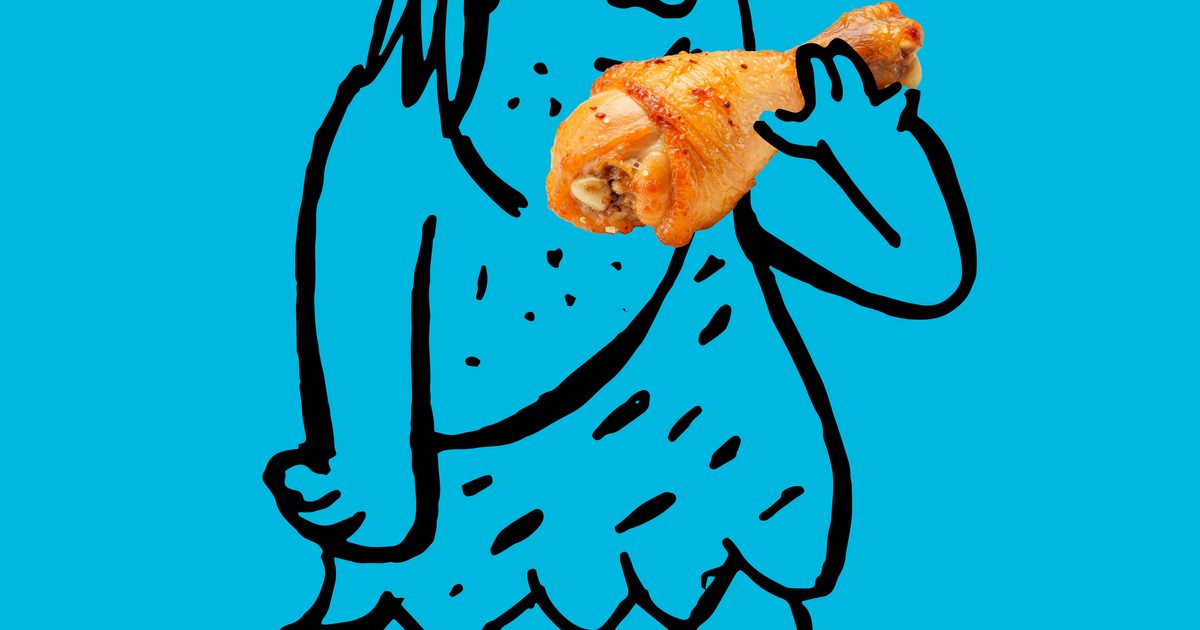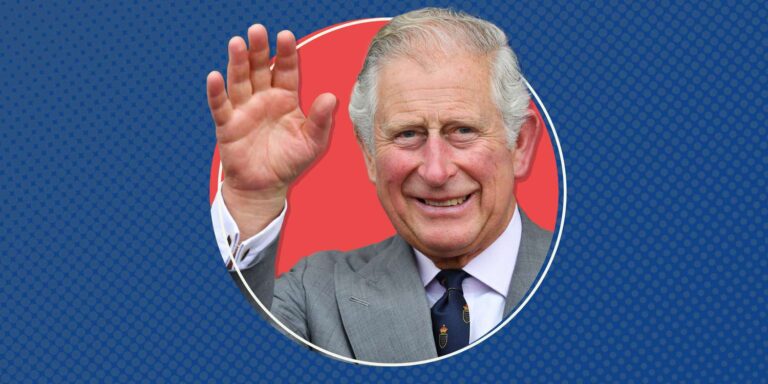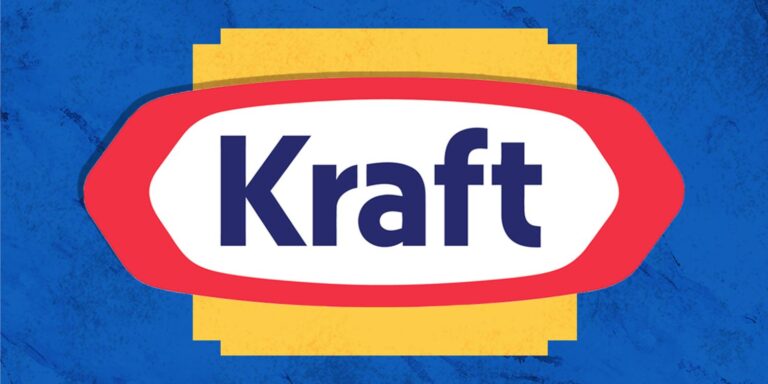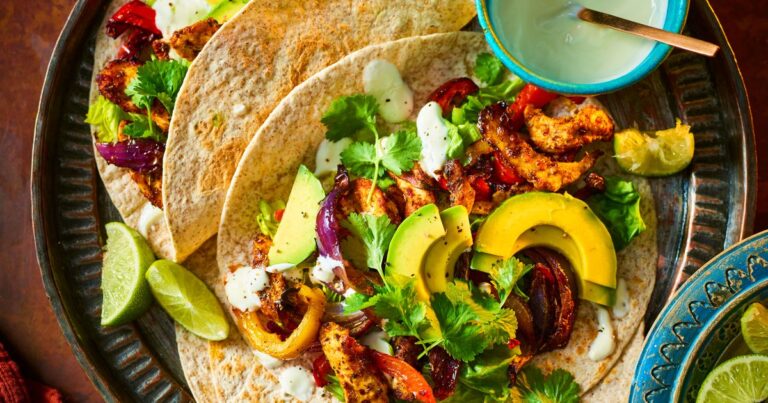Errors you make on a protein thrust
1. Neglect other nutrients
The increase in your protein intake has its use. If you exceed this macronutrient, you can develop a slimmer and muscular body composition, stay healthy during pregnancy and recover from injuries – especially if you have not eaten enough before.
However, increasing your protein intake should not lead to other important nutrients in your diet.
“Everyone seems to be obsessed with protein and I am excited to see why the majority in the UK meets their requirements without concern,” says Renee McGregorA sports dietary and author.
“If you eat foods for an excess, this has an impact, and this includes protein. It has a filling effect, so
According to McGregor, a balanced diet can have negative consequences because they have filled with protein.
“In the short term, this could mean that they feel tired and strive to concentrate, while this can influence the endocrine function, the health of bones and health of nerves in the long term.
“Over time, fixing on protein can cause an aspect of malnutrition.”
2. Not taken into account in their weight and lifestyle
The amount of protein required for ideal health and fitness varies from person to person. How much they weigh is a factor: the recommended amount is 0.75 g protein per kilogram of body weight per day for adults.
But the body weight is not the whole story. Other factors like that Type and intensity of the movement You do yours Oldif you pregnantAnd their general health also affects their ideal protein intake.
“I work with many very active people and they often try to use public health information that is published for sitting or overweight people,” says McGregor.
“It is quite a matter of concern in the sense that we have apparently lost the ability to look at and be nuanced, and to decide whether they are personally relevant for us.”
If you have consumed a lot of advice on how much protein you need and that you have difficulty getting to a daily figure, McGregor recommends that it may be best to listen to your stomach.
“Our body is smart and knows what we need,” she says.
“Toddlers go through phases of demanding protein-rich food and phases of the demand for a high carbohydrate nutrition. These small children are guided by their hunger, because that is what the human body should do.”
3 .. overwhelming on protein powder drinks
There is no doubt Protein powder drinks Are a comfortable and manageable vehicle to bring protein into our body, but McGregor warns that it can affect the overall food.
“Protein shakes often have no carbohydrate content, and carbohydrates are the key nutrient for energy and the Hormonal cascade that is necessary for the adjustment after training“, She says.
“I tell the athletes that they have to add this shakes milk to get carbohydrates instead of just mixing them with water. It is useless to absorb the protein if they don’t get energy.”
Investigations indicate this 1.2 grams of carbohydrates per kilogram of body weight per hour Should be taken over in the first hours after the training, as this makes it easier to recover. We don’t say that protein shakes are bad – they are simply not taken.
4. Use only a few foods to increase your overall protein
If you change your diet, you can simply add a few protein -rich foods to your daily diet. The worrying trend of bodybuilders Swallow raw eggs in the sense.
Instead of observing certain foods, McGregor recommends that it is crucial to get protein from a variety of sources, as this increases the variety of nutrients in their diet.
“I would encourage people to be as diverse as possible in their nutritional approach,” she says.
“If you are on the basis of a vegetable basis, you have to take into account grain and impulses over the day to make your amino acid intake. If you are vegetarians, foods such as Greek yogurt, milk and eggs are good.”
5. Neglection of your intestinal health
In order to use the amino acids from protein, we have to be able to metabolize the sources we eat or drink. To a certain extent it seems that the The absorption rate can be influenced by intestinal health.
“Your system must be able to digest protein. Therefore I ask customers to open myself up about their digestion” Atif RehmanA personal trainer and owner of ATIF FITNESS based on Graft house Fitness studio in Leeds.
“If you eat a protein -rich meal, think about whether you feel energetic or bloated. If you don’t feel good, you should make changes to improve your intestinal health, e.g.
“Protein is very good for us, but digestion is the key to the advantages.”
Social -Media platforms are flooded with content, presenting ideas for movement and nutrition.
A short Instagram search for “protein tips” brings dubious advice. Apparently Quinoa is not a protein source (Not true!). Another contribution claims that the human body cannot use a protein. Therefore, you should find alternative sources of amino acids instead (of course, of course, of course, The body can and uses protein).
Extreme or unusual advice is often rewarded by social media algorithmsHow it seems to have been the case MouthplicA sleep trend with little scientific evidence to support this. Some nutritional advice published on these platforms could even prove to be harmful.
“I see people in the gym who watch posts on Tiktok, Facebook, Instagram and YouTube, in which bodybuilders talk about a very protein -rich diet with many foods such as steak,” says Rehman.
“Maybe you have your own goals and you give you a boost, but I’m worried about whether yours Heart And Kidney are healthy. There are so many Deaths in bodybuilding. “”
7. Prioritization of quantity compared to quality
Regardless of whether you are vegan, vegetarian, keto or in between, Rehman emphasizes how important it is to get your protein from high -quality food.
“We have to be careful with every protein source, since many objects go through so much workmanship and modification with sugar and salt,” he says.
“A weight of my vegan customers did not go out, so I searched in their diet. They ate a lot of beans and tofu – what healthy protein sources can be – but they were in highly processed forms.”
“Another customer who eats meat bought cheaper options for food such as steak that were marked in the supermarket. I instructed him to go to local butchers instead where the meat is often fresher.”
The price of high-quality protein sources, especially meat, sometimes repulsive, but provided you get enough protein to meet your needs. There is a strong argument that the quality beats quantity.
8. Complete your protein intake into the hours after training
Danny WebberA sports nutrition scientist and owner of Webber Nutrition has found that some of his customers have misunderstandings compared to the best time for protein intake.
“For recovery, it is generally assumed that you need a protein -rich meal immediately after training, but that’s not always the case,” he says.
“It is better to have your daily protein distributed all day evenly. If you were an athlete who needs 150 g a day, it can be more effective to distribute this in five meals with 30 grams each than to go for long periods of protein after training. “
9. Nutrition with unbalanced “enriched food” food
According to Webber, a fixation on protein can sometimes lead to people using protein -packed products that harm more for their total food.
“There are many Paved food Out there like ‘protein pasta’ and ‘protein bread’, but the quality is often not great, ”he says.
“They are sometimes highly processed, and the people they eat could increase their general calories, sugar and salt intake, even though they think they are eating something that is good for them.”
“If the goal is to lose body weight and to choose these protein-car areas, especially those with additional sauces, take more calories than you need.”
10. Add their relationship to the protein
Protein has several decisive functions in our diet, from the regeneration of our body after training to the distance of hunger. There are certainly situations in which you could benefit from increasing your protein intake – but the clear message of nutritionists and fitness experts is that you don’t have to rethink how you consume it.
Webber works as a performance nutrition consultant for sports such as the Newcastle Falcons Rugby Union Team and Bury FC.
“These professional athletes recognize the importance of protein and try to eat it all day regularly, including something in terms of their training,” he says.
“They simply do the basics very well every day, and many things are not done for the average Joe. It is about fulfilling their needs due to their activity levels, choosing high -quality protein sources and being consistent.”
Further reading:







